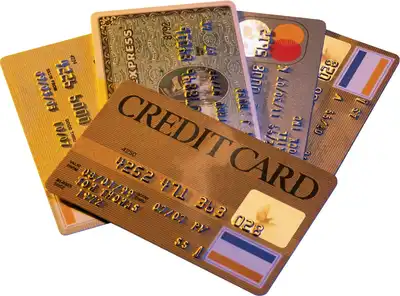Credit cards were originally called charge cards, named after the charge accounts they replaced with merchants. Charge accounts offered short-term credit, but the entire balance was due when the bill was rendered. American Express was known for offering primarily charge cards until recently when credit card options were introduced.
Credit cards offer the flexibility of making minimum payments over time, allowing for a more extended repayment period compared to charge cards. However, this comes with the cost of paying interest, which is typically higher on credit cards than on bank lines of credit.
While credit card companies make money from interest charges, they also generate revenue from processing fees charged to merchants. American Express, historically known for higher fees, used this approach when charge cards were their primary offering. Credit card companies can afford to charge lower fees due to their dual revenue streams.
Charge cards are often preferred for business purposes, where businesses don’t intend to carry over balances and have other borrowing options. Some individuals also use charge cards in conjunction with credit cards and other borrowing methods.
A notable benefit of charge cards is that the spending limit is not as rigidly tied to credit as with credit cards. The limit is determined more by spending habits, allowing some flexibility in spending without needing formal credit limit increases.

Credit Cards
Credit cards have become the most popular option, replacing charge accounts due to their flexibility. While some people do intend to pay off their credit card balances each month, credit cards offer the added benefit of allowing users to spread out payments over time if needed or desired.
Many people choose to finance purchases through credit cards, even though there may be more favorable options available to them, such as debt consolidation loans, lines of credit, or using their mortgage to consolidate high-interest credit card debt. This is partly due to the convenience of credit cards and a lack of awareness about better alternatives.
Proper financial education is crucial for managing personal finances effectively. Without it, people may end up paying excessive interest, leading to financial instability and even default. By consolidating debt or finding lower interest rate options, individuals can reduce the amount of interest they pay and improve their overall financial situation.
There are two main ways to use credit cards: as charge cards, where you avoid paying interest, or as lines of credit, where you make partial payments, including interest. If someone has access to a more favorable credit option, such as a lower-rate line of credit, the interest rate on their credit card may not matter as much to them.
Ultimately, being aware of various credit options and managing credit card usage wisely can lead to better financial outcomes and help individuals avoid unnecessary interest costs.
How Credit Cards Differ
Major credit cards like Visa and MasterCard are widely accepted at most merchants around the world. American Express, while widely accepted, may not be as commonly used due to higher fees charged to merchants. Discover is mostly accepted in the U.S. and may have limited acceptance in other countries.
Retail credit cards, on the other hand, are specific to the merchant that issues them and can only be used at that particular store or its affiliated brands. They may offer attractive incentives for frequent customers, such as interest-free financing options for a certain period.
Credit cards may come with annual fees, but many cards without annual fees are readily available. It’s essential to evaluate whether the benefits and rewards offered by a card with an annual fee outweigh those of cards without such fees.
To attract new customers, credit cards often come with introductory offers like lower interest rates, balance transfer promotions, or reward bonuses. These incentives can be advantageous if used wisely.
Many credit cards offer rewards programs that allow cardholders to earn cashback or points on their purchases. It’s generally a good idea to use cards with rewards programs, as the rewards can add up significantly over time, effectively reducing the cost of purchases.
However, to maximize the benefits of reward cards, it’s essential to avoid carrying a balance and paying interest. By using credit cards responsibly and taking advantage of rewards, cardholders can benefit from using their cards and potentially earn extra perks for their spending.
Prepaid and Secured Credit Cards
Prepaid credit cards are, in fact, prepaid debit cards, as there is no credit involved in their use. These cards work by loading a specific amount of money onto the card, and the cardholder can use that balance to make purchases until it is depleted. Prepaid cards may be used for online shopping due to their perceived security benefits, although credit cards also offer fraud protection.
Secured credit cards, on the other hand, are actual credit cards that require the cardholder to make a security deposit as collateral. This deposit serves as a guarantee for the credit card company in case the cardholder defaults on payments. Secured credit cards can be a valuable tool for individuals with poor credit or limited credit history, as they provide an opportunity to rebuild or establish credit. However, the terms and fees of secured cards may not be as favorable as standard credit cards.
Credit cards indeed come in various forms, and their terms and conditions can vary significantly between different issuers. It’s essential for consumers to shop around and compare different credit card options to find the one that best suits their needs and financial situation. Responsible use of credit cards can be beneficial for building credit and earning rewards, but it requires careful consideration and discipline to avoid unnecessary fees and interest charges.




